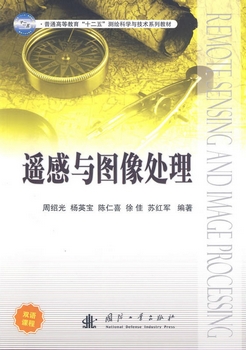网络环境下的构建型角色扮演
定价:¥32.00
作者: 沈麟
出版时间:2013-10
出版社:贵州大学出版社
- 贵州大学出版社
- 9787811266252
- 146176
- 2013-10
- H319.9
内容简介
中国英语学习者口头表达与交流能力差的哑巴英语现象是广大英语教学人员力求解决的问题。《网络环境下的构建型角色扮演》作者沈麟,全面系统地论述了网络环境下的构建型角色扮演的教学方法、教学实践、教学效果,对如何应用网络环境下的构建型角色扮演这一教学手段帮助学习者克服“哑巴英语”做了有益的探索。
目录
CHAPTER 1 INTRODUCTION
1.1 Background to the Study
1.2 Statement of the Problem
1.3 Purpose of the Study
1.4 Research Questions and Hypotheses
1.5 Definition of Key Terms
1.6 Significance of the Study
1.7 Limitations of the Study
1.8 Summary of Chapter 1
CHAPTER 2 LITERATURE REVIEW
2.1 Second Language Speaking
2.2 Computer-Assisted Language Learning (CALL)
2.2.1 Definitions of CALL
2.2.2 CALL in Language Learning and Teaching
2.2.3 Related Studies on CALL and L2 Speaking Instruction in China
2.2.4 CALL and L2 Speaking
2.2.5 Advantages of CALL
2.2.6 Disadvantages of CALL
2.3 E-learning
2.3.1 Definitions of E-learning
2.3.2 E-learning in Education
2.3.3 Benefits and Drawbacks of E-learning
2.4 Learning Theories
2.4.1 Behaviorism
2.4.2 Cognitivism
2.4.3 Constructivism
2.5 Constructive Learning Environment
2.5.1 Scaffolding
2.5.2 Task-based Language Learning and Teaching Approach
2.5.3 Role Play
2.5.4 Constructive Instructional Design
2.6 Theoretical Foundations for the Present Study
2.7 Summary of Chapter 2
CHAPTER 3 RESEARCH METHODOLOGY
3.1 Theoretical Framework of the Present Study
3.2 Research Design of the Present Study
3.2.1 Population and Participants
3.2.2 Variables
3.2.3 Instruments
3.3 Procedures
3.4 Instructional Analysis of the Present Study
3.5 Data Analysis
3.5.1 ANOVA
3.5.2 T-test
3.5.3 Qualitative Analysis
3.6 The Pilot Study
3.6.1 Participants
3.6.2 Speaking Pretest
3.6.3 Procedures
3.6.4 Results of the Pilot Study
3.6.5 Limitations of the Pilot Study and Some Implications for the Main Study
3.7 Summary of Chapter 3
CHAPTER 4 RESEARCH RESULTS
4.1 Results of Speaking Pretest
4.2 Results of Speaking Post-test
4.3 Results of Teacher Logs
4.4 Results of Student Role Play Recording Language Analysis
4.5 Results of Student Questionnaires
4.6 Results of Student Interviews
4.7 Results of Student Online Learning Logs
4.8 Summary of Chapter 4
CHAPTER 5 DISCUSSION
5.1 Effects of Constructive Role Plays via E-learning
5.1.1 Discussion on Student Speaking Performance
5.1.2 Discussion on Student Language Productivity
5.2 Students' Opinions on Constructive Role Plays via E-learning
5.2.1 Overall Opinions
5.2.2 Positive Opinions
5.2.3 Indecisiveness and Negative Opinions
5.3 Summary of Chapter 5
CHAPTER 6 CONCLUSIONS
6.1 Summary of the Study
6.2 Pedagogical Implications
6.3 Limitations of the Study
6.4 Suggestions for Further Research
REFERENCES
APPENDICES
1.1 Background to the Study
1.2 Statement of the Problem
1.3 Purpose of the Study
1.4 Research Questions and Hypotheses
1.5 Definition of Key Terms
1.6 Significance of the Study
1.7 Limitations of the Study
1.8 Summary of Chapter 1
CHAPTER 2 LITERATURE REVIEW
2.1 Second Language Speaking
2.2 Computer-Assisted Language Learning (CALL)
2.2.1 Definitions of CALL
2.2.2 CALL in Language Learning and Teaching
2.2.3 Related Studies on CALL and L2 Speaking Instruction in China
2.2.4 CALL and L2 Speaking
2.2.5 Advantages of CALL
2.2.6 Disadvantages of CALL
2.3 E-learning
2.3.1 Definitions of E-learning
2.3.2 E-learning in Education
2.3.3 Benefits and Drawbacks of E-learning
2.4 Learning Theories
2.4.1 Behaviorism
2.4.2 Cognitivism
2.4.3 Constructivism
2.5 Constructive Learning Environment
2.5.1 Scaffolding
2.5.2 Task-based Language Learning and Teaching Approach
2.5.3 Role Play
2.5.4 Constructive Instructional Design
2.6 Theoretical Foundations for the Present Study
2.7 Summary of Chapter 2
CHAPTER 3 RESEARCH METHODOLOGY
3.1 Theoretical Framework of the Present Study
3.2 Research Design of the Present Study
3.2.1 Population and Participants
3.2.2 Variables
3.2.3 Instruments
3.3 Procedures
3.4 Instructional Analysis of the Present Study
3.5 Data Analysis
3.5.1 ANOVA
3.5.2 T-test
3.5.3 Qualitative Analysis
3.6 The Pilot Study
3.6.1 Participants
3.6.2 Speaking Pretest
3.6.3 Procedures
3.6.4 Results of the Pilot Study
3.6.5 Limitations of the Pilot Study and Some Implications for the Main Study
3.7 Summary of Chapter 3
CHAPTER 4 RESEARCH RESULTS
4.1 Results of Speaking Pretest
4.2 Results of Speaking Post-test
4.3 Results of Teacher Logs
4.4 Results of Student Role Play Recording Language Analysis
4.5 Results of Student Questionnaires
4.6 Results of Student Interviews
4.7 Results of Student Online Learning Logs
4.8 Summary of Chapter 4
CHAPTER 5 DISCUSSION
5.1 Effects of Constructive Role Plays via E-learning
5.1.1 Discussion on Student Speaking Performance
5.1.2 Discussion on Student Language Productivity
5.2 Students' Opinions on Constructive Role Plays via E-learning
5.2.1 Overall Opinions
5.2.2 Positive Opinions
5.2.3 Indecisiveness and Negative Opinions
5.3 Summary of Chapter 5
CHAPTER 6 CONCLUSIONS
6.1 Summary of the Study
6.2 Pedagogical Implications
6.3 Limitations of the Study
6.4 Suggestions for Further Research
REFERENCES
APPENDICES



